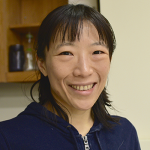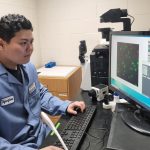Probing and Attacking the Cancer Surfacome
Probing and Attacking the Cancer Surfacome with Jim Wells, PhD
The cell surface proteome(surfaceome)is a major hub for cellular communication and a primary source of drug targets, especially for biologics. My lab is interested in developing proteomic means to probe how the surfaceome changes in health and disease, especially cancer. Such changes involve alteration in protein expression and post-translational modifications such as proteolysis. I’ll describe new engineered tools we have built to probe the surfaceome changes that occur when oncogenes are expressed in isogenic cell lines to identify targets of interest. We then target proteins either upregulated, proteolyzed or both with recombinant antibodies derived by phage display to be used as validation tools and potential therapeutic leads
Jim received his BA from University of California at Berkeley, PhD from Washington State University (with Ralph Yount), and post-doc at Stanford (with George Stark), prior to joining Genentech, then Sunesis Pharmaceuticals, and finally UCSF. Wells’ group pioneered the engineering of proteins, antibodies, and small molecules that target catalytic, allosteric, and protein-protein interaction sites; and technologies including protein phage display, alanine-scanning, engineered proteases, bioconjugations, N-terminomics, disulfide “tethering”, and more recently an industrialized recombinant antibody production pipeline for the proteome. His team was integral to several protein products including Somavert for acromegaly, Avastin for cancer, Lifitegrast for dry eye disease, and engineered proteases sold by Pfizer, Genentech, Shire and Genencor, respectively. He is an elected member of the US National Academy of Science, American Association of Arts and Science, and the National Academy of Inventors.
This is a virtual event on Zoom. Click here to get the link.





